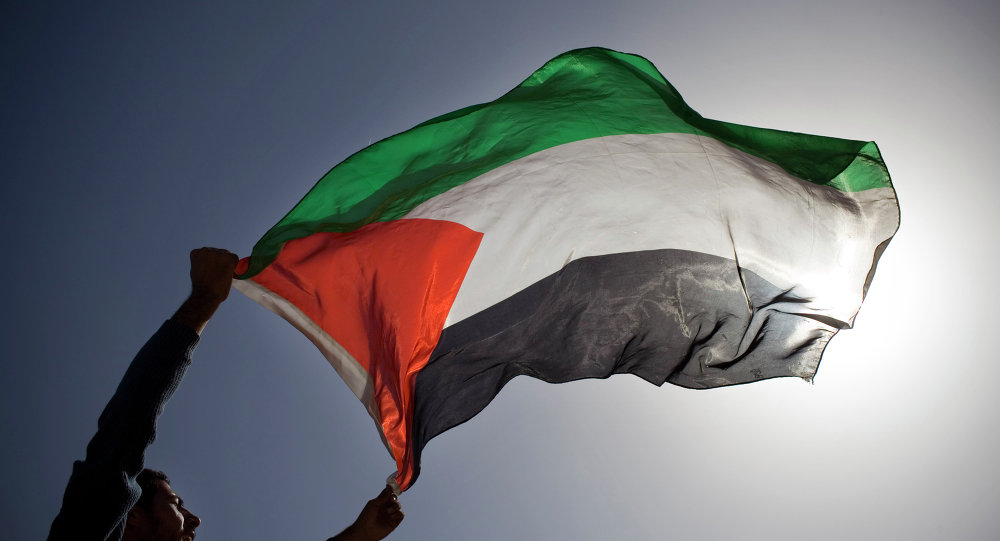(Tragedy of moral equivalency. Can you equate the death of an Arab while he throws a molotov cocktail with the murder of a Jew killed by that molotov cocktail? – David Bedein)
A prominent synagogue in Washington, D.C., will mark Israel’s 71st birthday by mourning “Palestinian losses” alongside Israeli terror victims, and refrain from holding any kind of Israeli independence celebration.
It’s the latest example of an appalling “both sides” mentality that blurs right and wrong, good and evil, and Israel and its would-be destroyers.
On Tuesday evening, May 7, Israelis—and Jews around the world—will hold solemn Yom Hazikaron ceremonies to remember the approximately 25,000 Israeli Jews murdered by invading Arab armies and Palestinian Arab terrorists since 1948.
But at the Sixth and I Historic Synagogue in the nation’s capital, a different kind of ceremony will be held. Called the “Israeli-Palestinian Memorial Day Ceremony,” participants will gather together for what they describe as “a memorial based on the values of hope, solidarity and non-violence. Hear from Israelis and Palestinians as they share their families’ stories of loss.”
Yes, Palestinian Arabs have been killed in the course of the Arab-Israeli conflict.
But that doesn’t make them all “victims.” And that doesn’t mean they should all be “mourned.” That doesn’t place them all on the same moral level.
In the conflict between Israel and the Palestinian Arabs, Israel is the victim and the Palestinian Arabs are the aggressors. Nobody is saying Israel is perfect. No country is perfect. No army is perfect. But we still should be able to make the basic distinction between right and wrong. We still should have enough sense to distinguish between cops and robbers.
The folks at the Sixth and I Synagogue will hasten to point out that there will be a similar ceremony in Tel Aviv, and that a handful of Israeli parents of terror victims will be taking part in it. It’s no secret that a tiny minority of victims of Arab terrorism have taken some disturbing positions. I’m not going to judge them. They have to deal with their grief in the way they choose.
But the fact that somebody in Israel is doing something that is morally muddled does not make it OK for American Jews to do likewise. I do not question the right of Sixth and I to do it. I question the wisdom and morality of their decision to publicly proclaim that Israel and the Palestinian Arabs are morally equivalent. They are not.
I’m not persuaded that the event at Sixth and I is just about mourning and empathy and sharing feelings. The synagogue’s leaders wear their political opinions on their sleeves. Senior rabbi Shira Stutman is part of J Street’s Rabbinic Cabinet. So is rabbinic fellow Jesse Paikin.
It’s not plausible that the decision to mourn the Palestinians is not part of their broader political agenda. J Street is devoted to bringing about the creation of a Palestinian state along Israel’s old nine-miles-wide border. Convincing American Jews that Israel and the Palestinian Arabs are equally “victims” facilitates that goal.
In Israel, Yom Hazikaron is followed the next day by Yom Ha’atzmaut, in which Israelis and Jews worldwide celebrate the rebirth of the State of Israel. For Palestinian Arabs, the very creation of tiny Israel was a nakba, a “catastrophe.” They will mark Yom Ha’atzmaut with mourning. They still yearn for the days when Israel did not exist.
And how will the leaders and members of Sixth and I mark Israeli Independence Day? In utter silence, apparently. The synagogue’s calendar of events makes no mention of any Israeli Independence celebration. The only thing listed for that day is a “Jewish Mindfulness” event that will “combine Jewish wisdom with yoga poses and Vipassana Buddhist meditation.”
I have no quarrel with yoga or meditation. But when a synagogue claims to be sympathetic to both Israelis and Palestinians, and then marks Israeli Independence Day with yoga poses, one starts to get the feeling that maybe they’re sympathetic to only one side after all.
Stephen M. Flatow, an attorney in New Jersey, is the father of Alisa Flatow, who was murdered in an Iranian-sponsored Palestinian terrorist attack in 1995. He is the author of “A Father’s Story: My Fight for Justice Against Iranian Terror.”









